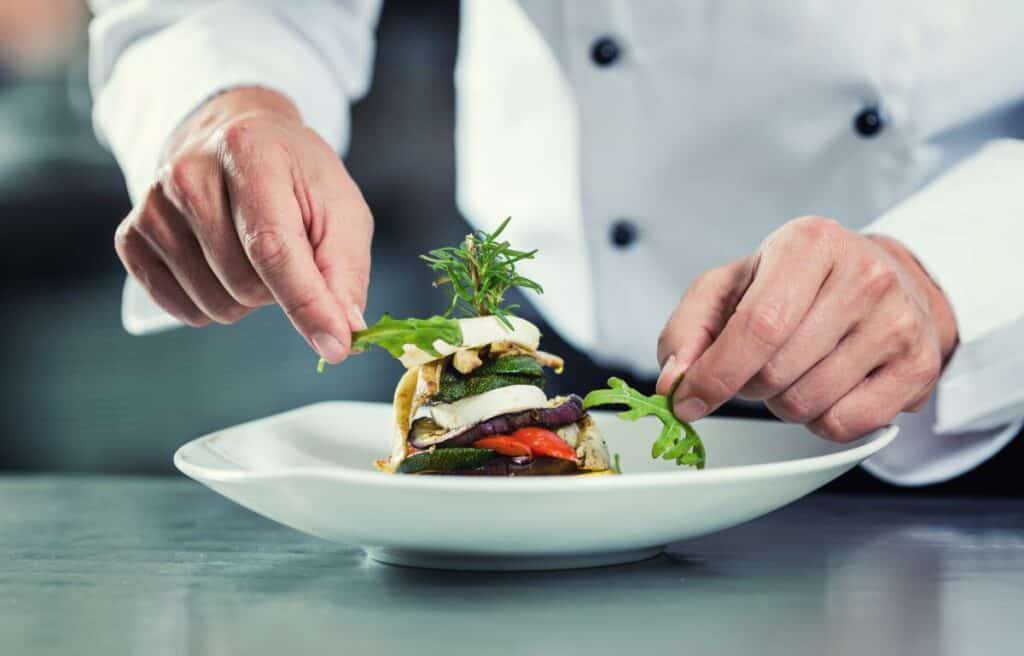- Chef de Cuisine Job Description and Responsibilities - August 10, 2021
- Executive Chef Job Description and Responsibilities - July 21, 2021
The word Chef de Cuisine may be new to most people, but it literally means “head of the kitchen”. The Chef de Cuisine is more commonly known as the Head Chef of the kitchen.
In many traditional commercial kitchens, the roles of the Head Chef, Chef de Cuisine, and that of the Executive Chef are more or less the same in practice. The titles can even be used interchangeably in an establishment that doesn’t strictly follow the French Brigade System.
The distinction between the Chef de Cuisine and the Executive Chef emerges mainly in establishments with more than one branch or ones that are too big for a person to handle. You can’t manage the business side of things and the kitchen if the restaurant is big and well-established.
I’d like to point out that it’s usually the larger restaurants and kitchens that do follow the French brigade system or have an internal structure of their own. In smaller kitchens, people can work just fine without strictly defined roles.
I like to define Chef de Cuisine as someone who simply oversees kitchen operations in a commercial kitchen. I’m keeping the definition vague because the exact roles and requirements for a Chef de Cuisine position vary greatly.
Duties of a Chef de Cuisine
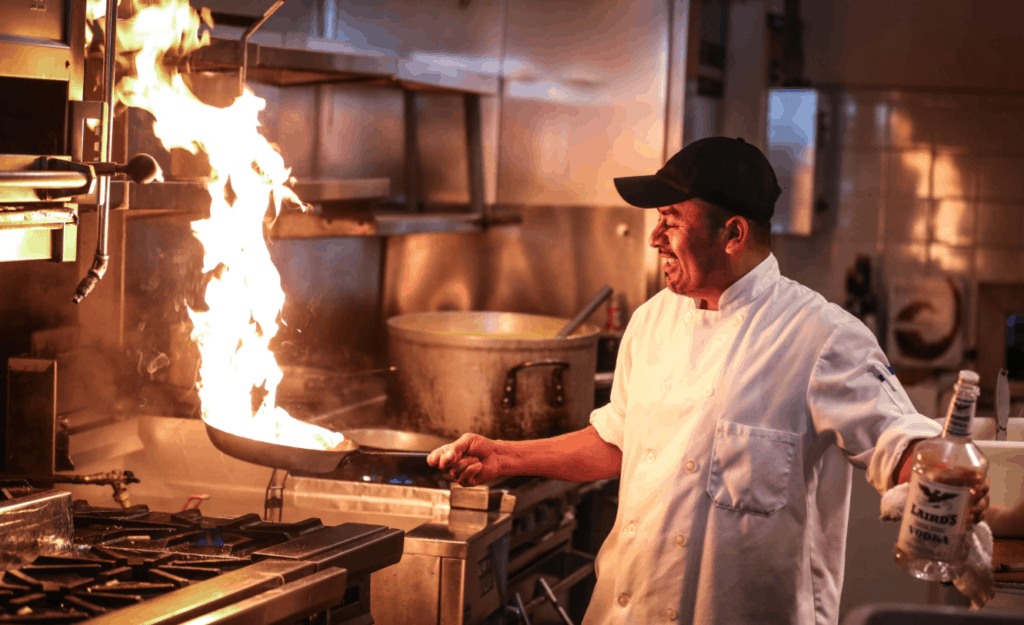
In large establishments where the Executive Chef has much more pressing matters to attend to, the day-to-day workings of the kitchen, staff training, and most other things like that are left under the care of the Chef de Cuisine. Here are some of the duties of a Chef de Cuisine.
- Taste and modify the recipes for the food being prepared in the kitchen. They’re also responsible for overseeing the plating and the presentation of the dishes coming out of the kitchen.
- They’re responsible for making sure the health and safety regulations set by the government are being met by the kitchen staff.
- Chef de Cuisines keep track of all the kitchen equipment and inventory. Working in the kitchen and overseeing day-to-day operations mean that they’re supposed to know when inventory is about to fall short or when kitchen equipment needs replacing or maintenance.
- Training the staff and making sure they know what they’re supposed to do in the kitchen. Menu changes, special items, and other offers are far too common in commercial kitchens. It’s the Chef de Cuisine’s job to make sure that the specialist chefs and line cooks know what they’re doing, and that they know how to make any of the new dishes the senior chefs have added to the menu.
- Provide regular feedback to the line cooks and staff in the kitchen and suggest any improvement they need to make in the way they work.
- Attend staff meetings and be part of the planning and development of the strategy for the kitchen they oversee.
- Regularly report to the Executive Chef about the performance of the kitchen personnel, the day-to-day operations, and bring anything to their notice that they should know about.
- Ensuring customer satisfaction, dealing with any special requests, and making sure any complaints are heard and any grievances dealt with.
- Make sure the kitchen staff is constantly trained about and kept up-to-date with the latest industry developments, cooking methods, and more.
You might also have other additional duties depending on where you’re working. If you’re working on a resort or an exclusive club, your duties might include getting to know all the members personally and knowing their personal tastes and preferences.
As part of a catering company, you may have to make yourself visible to the guests at the location of any banquets you cater to and to make sure everything is set up and ready to go before any guests start arriving. In that case, your duties will also include getting all the tables and the venter pieced ready.
Your duties will also vary greatly depending on the restaurant you’re working at. Routines will vary depending on the menu and the dining experience you hope to provide your customers with, In case of a buffet-type setup, you’ll be in charge of making sure all the dishes and dining options are warm and present at all the stations.
Differences Between the Chef de Cuisine and the Executive Chef
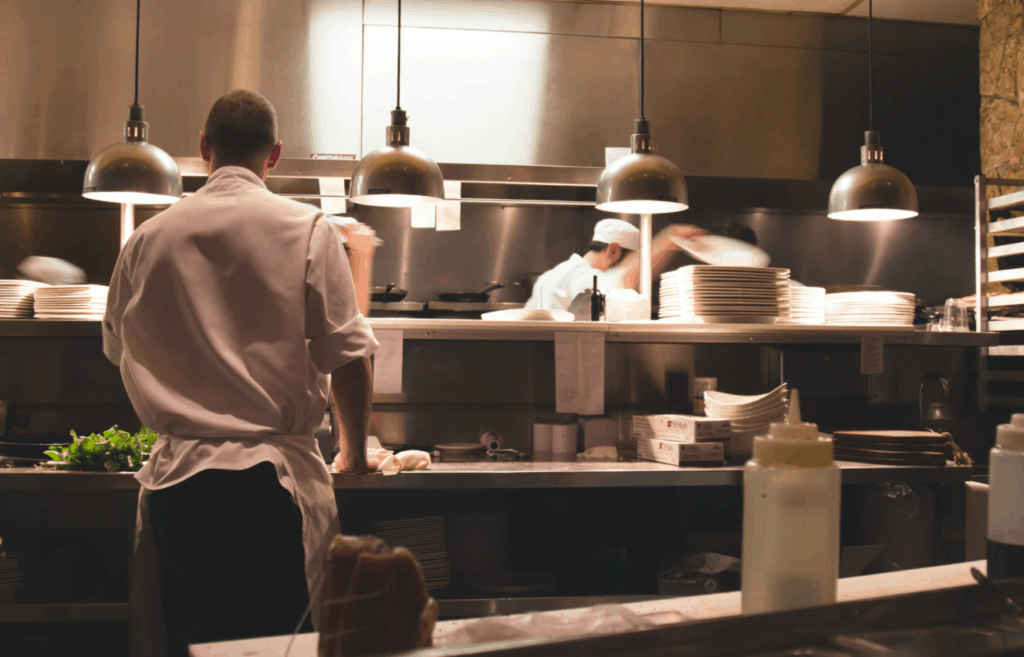
Now that we’ve discussed the many duties of a Chef de Cuisine, you’re probably wondering why this is a role different than that of an Executive Chef. Well, there are a couple of reasons.
First, when a restaurant gets too big, the Executive Chef can’t be expected to take care of everything in their job description. It would take a lot of energy to be able to manage the menus in different restaurants in different locations, keep track of the inventory levels at each one, be responsible for training all the staff, and much more for just one person. And this is simply when we’re talking about the duties of an Executive Chef inside the kitchen! They have to manage the restaurant’s finances, plan the menus, make sure everything is running smoothly, and much more.
Simply put, in the presence of a Chef de Cuisine, the Executive Chef takes on a more managerial role and is free to focus on running the establishment as a whole and to leave the kitchen in the hands of the Chef de Cuisine.
Here’s a table listing the differences between an Executive Chef’s role in the kitchen in the presence of a Chef de Cuisine.
| The Executive Chef’s Role in the Kitchen | The Chef de Cuisine’s Role in the Kitchen |
| Manages and oversees multiple kitchens and the establishment as a whole. | Manages and oversees operations in just the kitchen they’re in charge of, which could be one of the many kitchens that an Executive Chef manages and is responsible for. |
| Strictly managerial. The Executive Chef will make sure to communicate his expectations with the rest of the kitchen management and leave the implementation to them.
In many cases, the plans and menus for different establishments spread over a wide geographical area can vary widely. For a restaurant set in a coastal city, the seafood portion of the menu can be the star of the show, but that may not be the case in a location where fresh seafood is harder to come by. |
More involved with the kitchen they oversee. They may be involved with the Executive Chef’s decision-making and planning process, but they also work on making sure the planned changes are implemented properly in their own kitchen.
They’re not concerned with how the other restaurants are being run, and what the plan for them is. |
| They may or may not be personally involved with each and every kitchen under their care. Think about the CEO of a company. All the workers and middle management will know about them but they won’t interact with the CEO often. The same applies to the Executive Chef. Even if they oversee just one large kitchen, they can leave the day-to-day of the kitchen to the Chef de Cuisine if they wish. | The Chef de Cuisine is directly responsible for training and leading the kitchen staff to battle every day. While this is something that sometimes comes under the job description of an Executive Chef, it’s a very important part of the job for the Chef de Cuisine. |
| In a restaurant with multiple branches, the Executive Chef will be in charge of all of them. In a large restaurant with just one branch, they will be more involved with managing the restaurant as a business more than just as a kitchen. | Even in a restaurant with multiple branches, the Chef de Cuisine will be in charge of |
Skills Needed to be a Chef de Cuisine
Chef de Cuisines usually report directly to the Executive Chef, and sometimes delegate tasks to and depend on the Sous Chef for assistance and the performance of day-to-day tasks in the kitchen.
A degree or diploma in the culinary arts only makes you qualified for a position as a line cook – being qualified to be a Chef de Cuisine takes years of experience and a combination of skills that one can only acquire by learning them from other skilled chefs in a professional setting.
In order to be considered for a Chef de Cuisine position, you need to have the following skills.
A Trained Palate
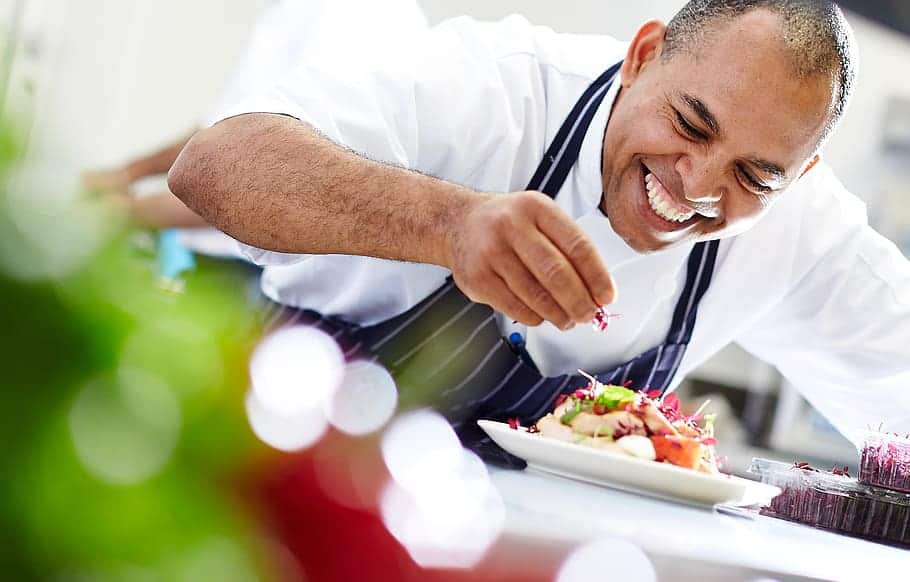
A Chef de Cuisine is responsible for tasting any dishes that the line cooks prepare, and making sure that every dish that leaves the kitchen is consistent in both taste and quality. They sometimes also help the Executive Chef develop new dishes for the menu. All this requires a fine palate that can identify the smallest incongruencies in taste and consistency.
Leadership Skills
The kitchen is a hectic and fast-paced work environment. Dishes are always in various stages of preparation and are all to be served to the customers hot and fresh. This requires running the kitchen like a well-oiled machine, facilitating the collaboration between different cooking stations, making sure to play to the strengths of all the staff members while encouraging growth in areas in which they’re lacking, and much, much more.
All this is a job for a grizzled professional and mentor who can help both novice line cooks and experienced specialist cooks alike navigate the kitchen and collaborate successfully. This collaboration is key to making great dishes in a commercial kitchen, which often pass through multiple stations before they’re ready to be served.
Cooking Skills
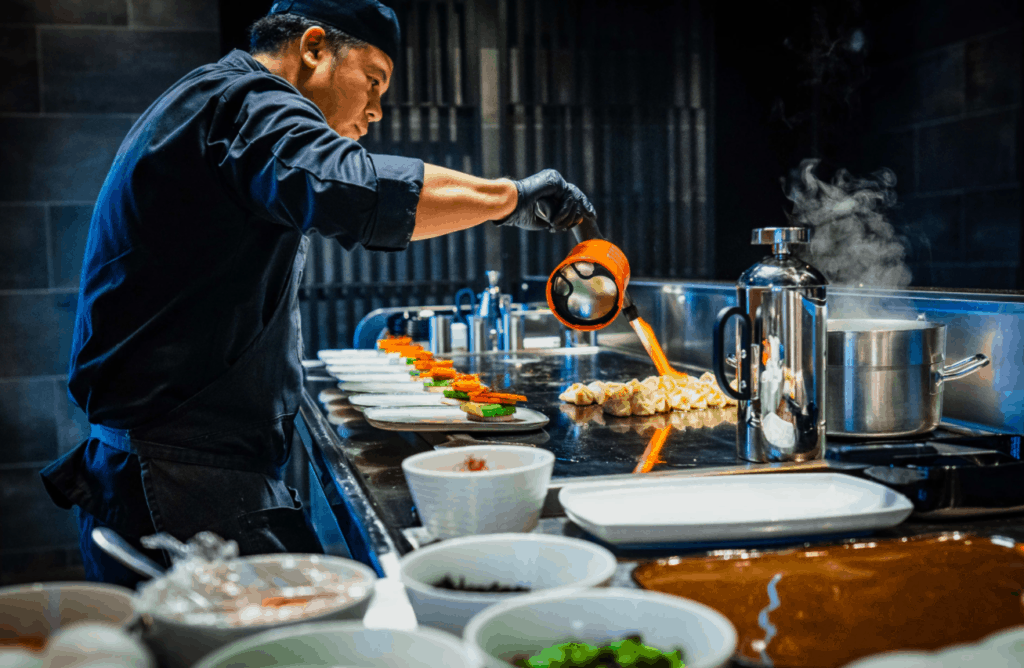
Leading a commercial kitchen isn’t like being a coach – you need to have impeccable cooking skills and expertise in various food preparation methods to lead your team effectively. You’ll also need to occasionally fill in for some of the specialist chefs that aren’t available at the moment, and often be involved directly in the preparation of the food being cooked.
You may also need to prepare some of the more important or harder dishes yourself for special customers.
Ability to Work in High-Pressure Environments
Working in a commercial kitchen – no matter what kind of position you have – is not child’s play. Restaurants are open and working at all hours of the day and constantly churning out high-quality food.
Managing a fast-paced environment like that requires someone who can keep their calm in hectic situations and work well under pressure. When things go wrong, the Chef de Cuisine is who the kitchen team will often look to for guidance, and for solving problems they can’t find a solution to themselves.
Communication Skills
Leading a team – no matter what kind it is – requires great communication skills. This is something that can’t really be taught, but it can be developed over time. You’ll also need communication skills as a Chef de Cuisine to talk to your customers and guests, figure out what they want, and address any issues or problems they might have.
Creativity
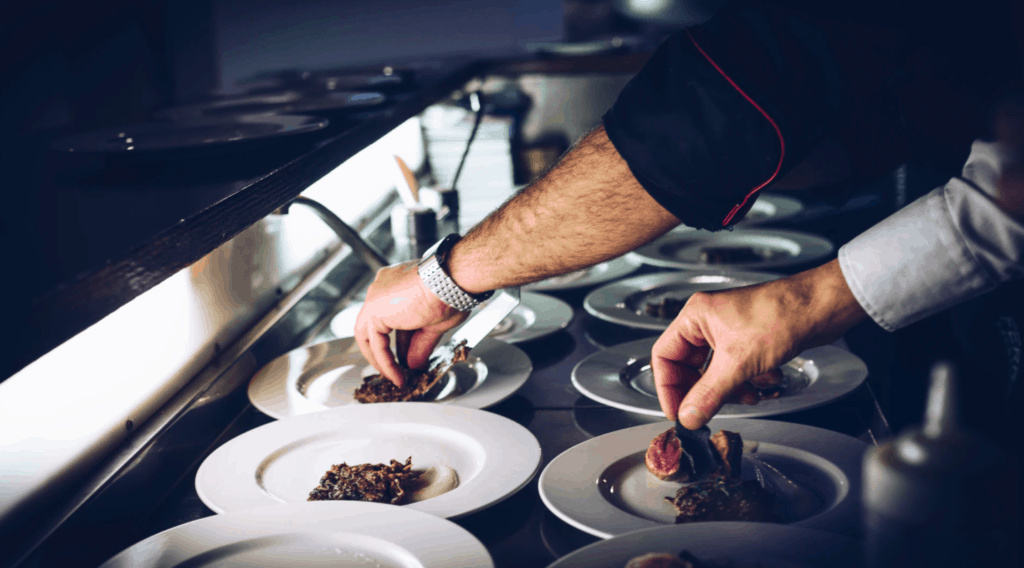
Creativity is such a vital part of a Chef’s career that many Chefs are fine arts majors, or at least have a diploma in fine arts along with their cooking certifications. While it’s most important for Patissiers (pastry and dessert chefs) to have a creative flair, there’s not a chef who wouldn’t benefit from it.
Creativity in the kitchen manifests in the form of amazing and visually appealing food plating, coming up with solutions to any problems faced in the kitchen, and coming up with faster, better ways to do things. When you’re leading the kitchen, you need to be able to pull these things off and teach other chefs how to do them too.
Organization Skills
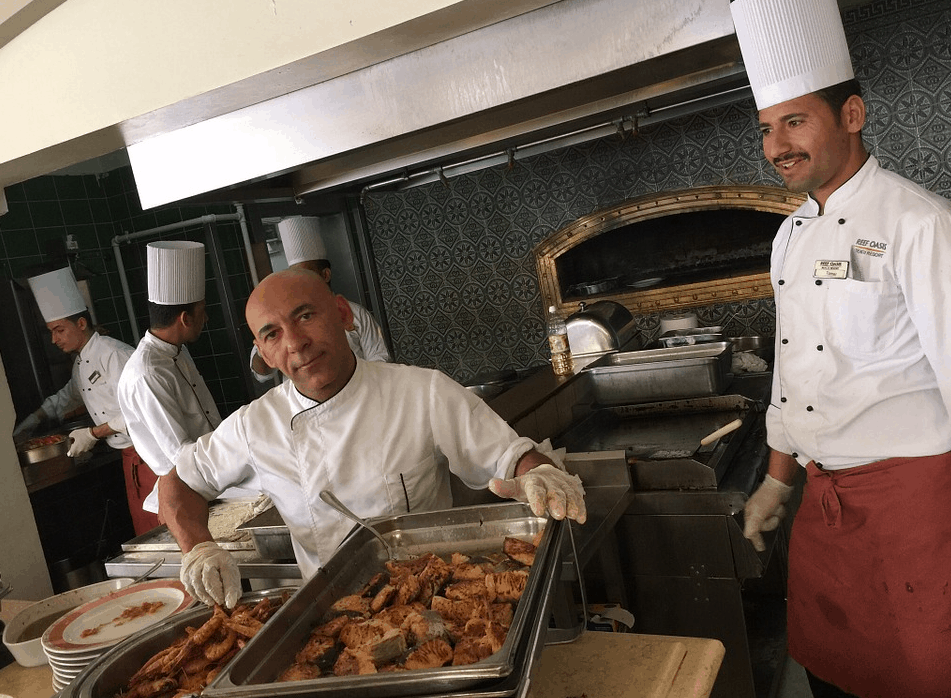
Leading the kitchen team will often involve managing their schedules, maintaining employee files, and all kinds of other tasks that would be impossible without proper organization skills. A Chef de Cuisine needs to be someone who’s organized, well-managed and knows how to organize the chaos in the kitchen.
They’ll need to keep constant track of everything that’s going on in the kitchen, respond to problems in a timely manner, and mentally keep track of all the things that need to be done.
Hands-on Approach
While the ability to delegate tasks to others becomes more and more important the higher you get on the chef hierarchy, but as a Chef de Cuisine, most of your job will still involve being present in the kitchen and dealing with problems and issues as they arise.
You may have to occasionally step in and show the kitchen staff how certain things are done, and even how to plate and present certain dishes.
You’ll need to taste most of the stuff that’s being prepared and suggest any changes that need to be made, and keep an eye on the newer members of the staff to make sure they’re working how they should. All this requires a very hands-on approach to your job, and I might even say that you can’t be a good leader in the kitchen if you’re not willing to get your hands dirty now and then.
Availability on the Weekends and Holidays
Not only is the restaurant business operational during the holidays, but it’s also thriving when that time comes. Weekends are often the busiest times of the week, and while people working in all other kinds of offices and industries are just getting off work, most restaurants start filling up in the evening.
This makes it imperative that the Chef de Cuisine is available to work in the kitchen at those times, and can make themself available at short notice when the need arises, sometimes even if it’s a day off for them. Even a normal workday for a Chef de Cuisine can be as long as 10 to 12 hours!
Hazards You Can Face on the Job
Working in a hectic commercial kitchen isn’t without its hazards and dangers. Accidents happen sometimes, and burns are something that most line cooks and chefs often deal with. Here’s a list of all the hazards you need to be prepared to face in a commercial kitchen:
- You will be expected to handle sharp kitchen utensils and knives often.
- You’ll need to work with fire and other heated equipment, and you’ll need to be mindful of hot surfaces.
- You’ll need to work with blood, raw meat, and many other ingredients that may pose a health risk unless properly cleaned or handled.
- Some restaurants disclose having to deal with angry or dissatisfied customers as a potential hazard as well.
- Working with and handling commercial kitchen equipment comes with its own challenges and possible dangers.
How to Become a Chef de Cuisine
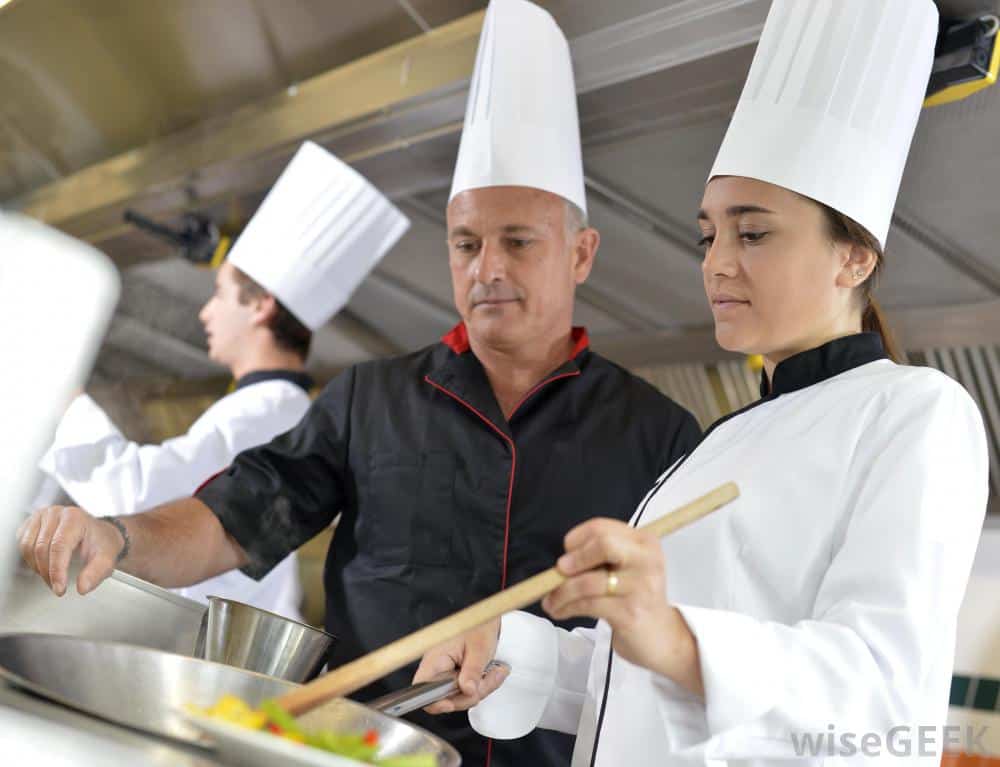
Many people who are Chef de Cuisines today used to work as line chefs or maybe even started at the very bottom of the commercial kitchen lineup once. Chef de Cuisines usually have a culinary arts diploma or a bachelor’s in food sciences or a related field along with years of experience working in commercial kitchens.
Most places who are looking to hire for a Chef de Cuisine position ask for anything between five to ten years of experience, depending on the amount of work the Chef de Cuisine might be expected to take on, and how much of the kitchen’s operations they’ll be responsible for. The requirement for experience also depends on how involved an establishment needs you to be in the decision-making and planning process for the organization.
The most common way for someone to become a Chef de Cuisine is to work their way up the commercial kitchen hierarchy. Once they have enough experience and qualifications, they can either be promoted from within the ranks of your own kitchen, or be hired directly into that position somewhere else.
What’s Next?
After landing the Chef de Cuisine position, many chefs aim to become the Executive Chefs of an establishment, or the owner of their own restaurant. Many chefs have taken their career to the next level by becoming celebrity chefs or establishing a TV or online presence after becoming in charge of their own kitchens, and an Executive Chef position naturally follows.
If you’ve managed to get this far in your culinary career, chances are you’re headed to an Executive Chef position in a short time. However, it may also be a great time to start learning more about how to run a business in addition to knowing how to cook, because any professional role above Chef de Cuisine or Head Chef will likely call for it.

